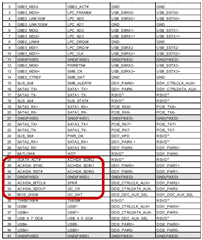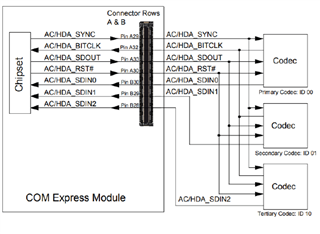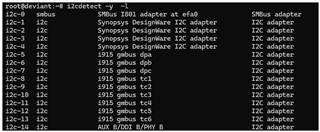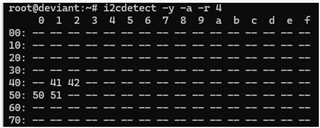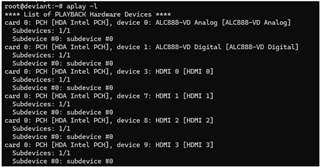Other Parts Discussed in Thread: TAS2770, TAS2781, TAS2563,
Tool/software:
The datasheet www.ti.com/.../tas2770.pdf for the TAS2770 amplifier includes
a hint on how to use it to design a stereo version or even a multi-channel version described in www.ti.com/.../slou497.pdf .
There is also an evaluation board www.ti.com/.../TAS2770EVM-STEREO, which, together with PPC3,
constitutes a very good tool for starting and checking amplifiers based on the TAS2770.
Since a Linux driver is available, such an amplifier has been implemented.
The amplifier is to use the ComExpress bus signals existing on the Intel Ekhart Lake platform
(EHL9A21 to be precise) working with the Debian system.
I have no experience writing drivers, but I read the available information
and managed to compile and load the snd_soc_tas2770 module.
The amplifier is recognized and controlled by I2C via addresses 0x41 and 0x42.
However, it is not recognized by the ”aplay -l” command.
Actually. I have a VERY SPECIFIC question and would appreciate a specific answer
“I need specific installation instructions, which include all required configuration parameters to install the module snd_soc_tas2770 correctly, so it will be recognized in the system when using the aplay-I command.
There is also a problem that the driver is only for the mono version, but we will deal with problem that later.
Henryk



